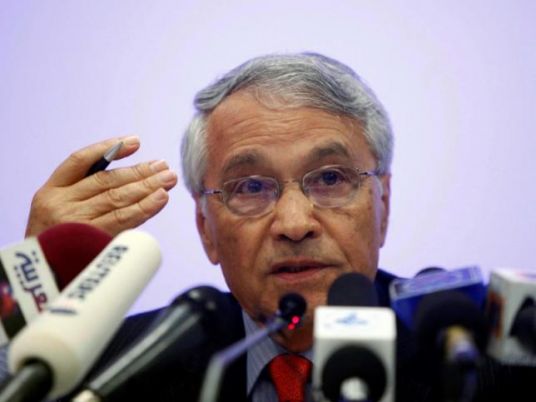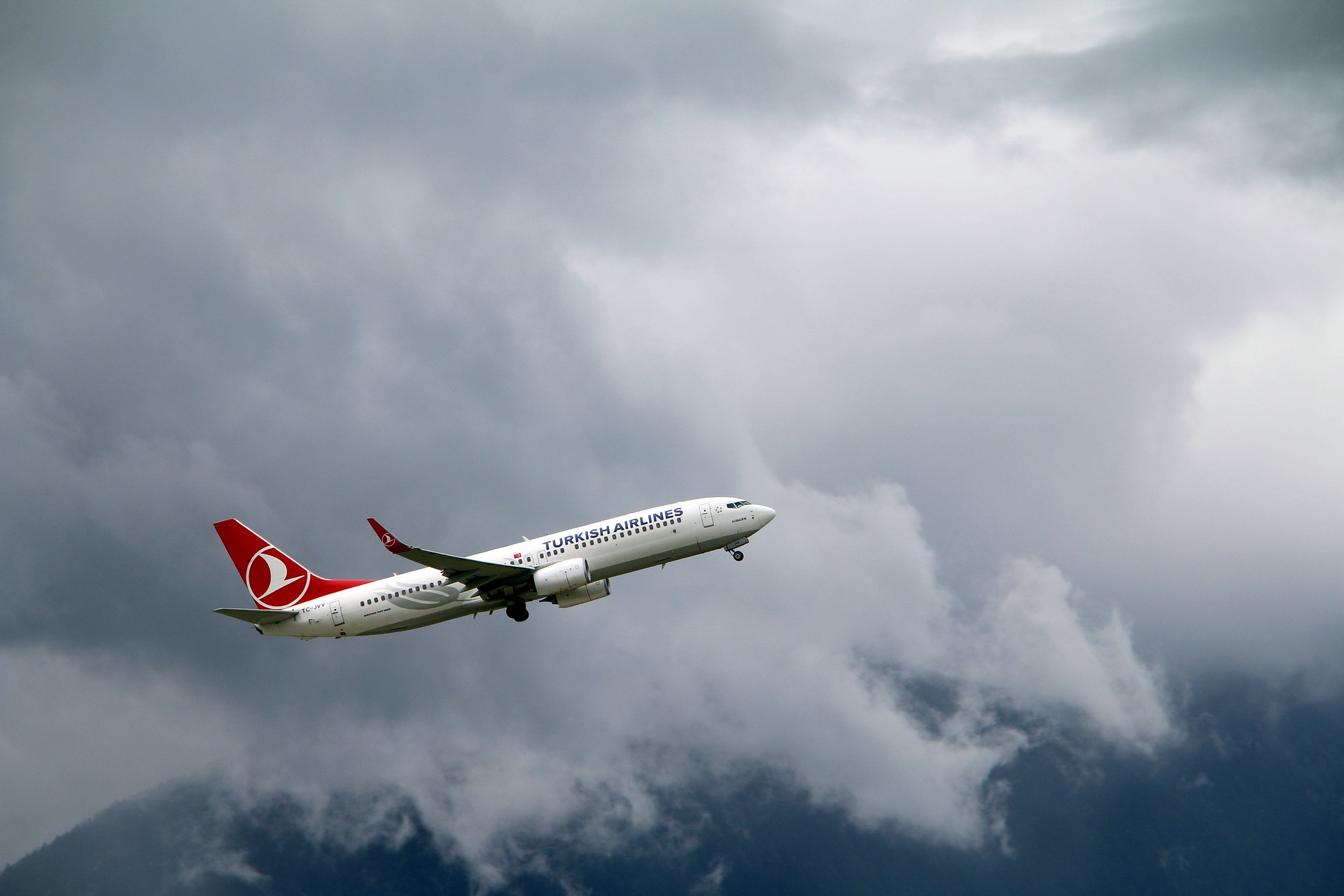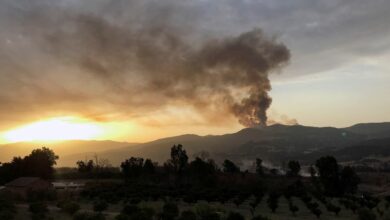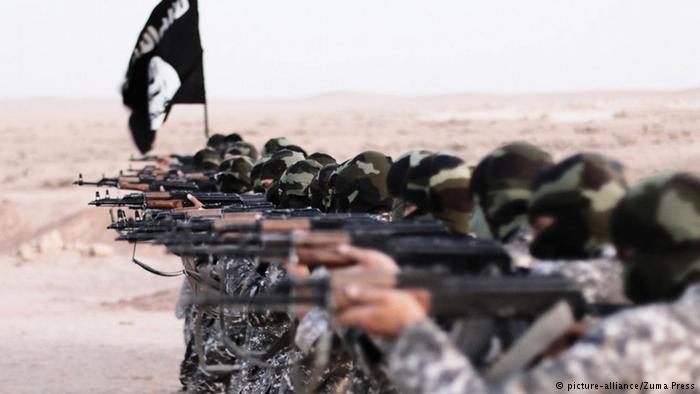
When ex-oil minister Chakib Khelil left Algeria in 2013 caught up in a corruption scandal, his fall from grace was seen by many as the political end for a staunch ally of President Abdelaziz Bouteflika and architect of pro-market economic reforms.
Three years on, the US-educated former World Bank technocrat and OPEC president has returned from exile, welcomed with open arms by the ruling FLN party, which barely mentions the past scandal other than to dismiss it as a smear.
His return has infuriated critics who see impunity at work. But Algerians are now speculating whether reformers in the Bouteflika camp are back in the ascendancy, given the task of trying to protect an economy battered by falling oil prices.
It is the latest manifestation of a shift in power back towards civilian allies of Bouteflika since the veteran ruler dissolved a powerful military intelligence body last year that had long exerted political influence behind the scenes.
Algeria's leadership — once dominated by backroom power struggles between Bouteflika's civilian loyalists and generals — has come under more scrutiny than usual since Bouteflika suffered a stroke in 2013. He has rarely been seen in public since, despite winning re-election a year later.
So far, Khelil has avoided giving a direct explanation for why he picked this time to return to the country.
"Let's focus on the future. There is so much to do in these times of crisis in Algeria. Looking back is useless," Khelil told Reuters on a trip to a religious ceremony outside Algiers, without mentioning any future plans.
In 2013, he and two of his sons were among nine people Algeria sought with international arrest warrants in a bribery investigation involving state oil and gas firm Sonatrach and an affiliate of Italian company Saipem.
At the time, officials said Khelil and the others were accused of corruption, peddling influence, abuse of office, money laundering and illegal procurement. Some private media began to portray him as a public enemy.
But Khelil was never arrested, and the attorney general who issued the warrant against him has since left the office.
He always denied the accusations against him and his family, and said he would return home to face trial if the judicial process was fair. The attorney general's office did not answer repeated calls for comment on the status of the investigation.
The ruling Front de Liberation National party signaled Khelil's rehabilitation weeks before his arrival in Algeria last month. Party chief Amar Saadani cast Khelil as a victim smeared though judicial manipulation by the DRS military intelligence service shut down last year.
"Chakib Khelil is a highly competent executive, who was unjustly wronged," Saadani told local radio. "His return to Algeria does not violate the law and everything that is said about him is a lie."
"System of the state"
For years, the DRS chief Mohamed Mediene had a reputation for acting behind-the-scenes, influencing newspapers, ministries, judges and political leaders competing for influence with Bouteflika and his supporters.
Since Bouteflika's 2014 re-election, the president steadily squeezed the intelligence agency out of politics by retiring generals and reforming the military. Late last year the presidency announced Mediene would step down and the DRS would be dissolved.
Since then, Khelil has not been the only exiled leader to return. Abdelhamid Brahimi, a former prime minister, has come back, as did several former conservative Islamist leaders.
But despite the FLN's defense of Khelil, opposition parties are outraged that he has returned without any investigation into the past. That, they say, stains Algerian justice and illustrates the clientelism of its politics.
"It just shows how the system of the state is run through personal patronage," opposition party lawmaker Karim Tabbou told Reuters. "Obviously, he is part of the presidential clan that doesn't accept any dissent or opposition."
Opening up debate
Khelil's journey through Algeria's political system has been closely tied to Bouteflika, the independence-era veteran who has been in power for more than 15 years and who many Algerians credit for helping bring their country out of the 1990s decade of war with Islamist fighters.
Before the scandal broke, Khelil had been Bouteflika's advisor and then energy minister for almost ten years until 2010, during some of which time he also served as president of OPEC. He was ousted from the minister's position in a cabinet reshuffle in 2010 just as the corruption scandal surfaced.
Italian prosecutors said the "Sonatrach II" case involved millions of euros in bribes paid for Saipem to Algerian officials. Eni, which owns most of Saipem, Europe's biggest oil services group, denied any wrongdoing.
Khelil's return may signal the rise of proponents of market reform at a trying time for Algeria's leadership as it struggles with low oil prices and tries to attract the foreign investment. Insecurity is also a worry, with neighboring Libya in chaos.
With its energy revenues almost halved and foreign reserves depleted by more than US$35 billion last year, the government has already trimmed budgets, cut some subsidies in the vast welfare system and suspended infrastructure projects.
Analysts and diplomats say the oil price fall has triggered debate among Algerian leaders between those tied to past resource nationalism and technocrats keen on opening an economy that scares off some investors with an arcane banking system, currency controls, red tape and a law demanding 51 percent state ownership of businesses with foreign partners.
For now, Sonatrach is focused on trying to maintain the energy production that makes Algeria a major European gas supplier. Recent energy bid rounds failed to pull in the kind of foreign investment the company needs to broadly increase production that has stagnated for a decade.
"Khelil's return is indicative of the gradual resolution of some of the intractable political infighting in Algiers and the very small pool of qualified technocrats in Algeria's hydrocarbons sector," said Geoff Porter at North Africa Risk Advisory.
In oil industry circles, there is already speculation about what a position for Khelil could mean to negotiations over future contracts.
Khelil helped bring in a 2005 hydrocarbons law to open up Algeria's oil sector, only to have some of the more liberal terms reversed in 2006 by the presidency, in what Khelil himself described as a political decision at the time.
"They may say, why not use him, he is an asset they can't afford to miss," one Western diplomat said on the ex-minister's return. "He could be a help in making them more of an international partner."




